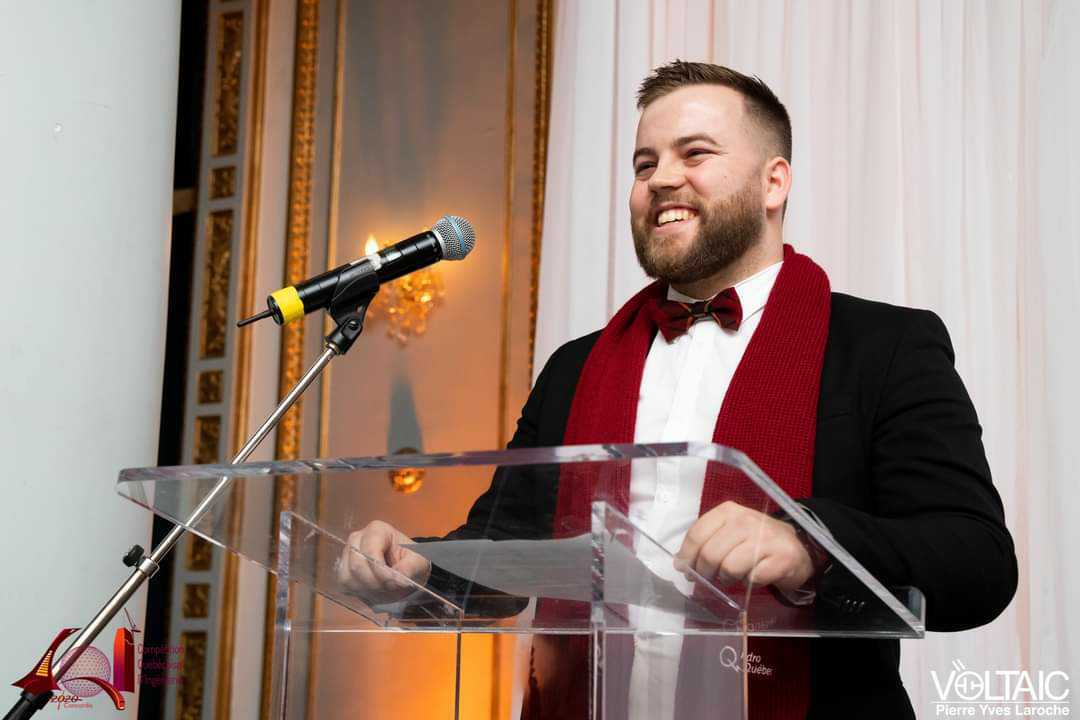Alex Stojda was disqualified as he ran to be President of the Engineering and Computer Science Association (ECA) for a second year
In March, Alex Stojda, then-President of the Board of Directors for the Engineering and Computer Science Association (ECA) was disqualified from running for reelection because of a bylaw infraction.
ECA’s bylaw B.4.1.3 states that, “Current executives of another society, association or committee that has financial affiliations with ECA, excluding all ECA appointed committees, shall not be eligible to be the President or Vice-President of Finance of the Association.”
Stojda was disqualified because it was his first year as President of the board of the ECA, and he was on the executive board at Reggies Bar, which has financial connections to ECA.
“I disagreed [with the disqualification], but I was willing to rectify the situation and resign [from Reggies] because the ECA is the thing I care the most about,” said Stojda.
He explained that he tried to appeal the decision, and said his bylaw infraction was minimal and easily remedied, but it was not accepted.
He also stated that bylaw B.4.1.3 was added in March 2019, halfway through his term on the executive board at Reggies.
When he became President of the board, he explained, the issue of him also being on the board of Reggies was never brought up.
“In one word, I feel betrayed,” said Stojda. He explained that while he understands that different interpretations of bylaws happen, the issue is that he was never allowed to argue against it, “Or have the three years of my work as an executive on the ECA considered.”
“My offer to resign from Reggies was never addressed and it was never explained to me why that option was unacceptable,” said Stojda.
He admits that he wasn’t surprised by the accusation, as it was election time and it is common for “the dirt to come out,” but he was surprised by the verdict.
A petition created in May to reinstate Stojda garnered just under 150 signatures, but the petition was never acknowledged by the ECA CEO Febrian Francione. Stojda explained that the support for the petition is a significant amount as the average voting turnout for the ECA is around 350 students.
The petition claims that the issue with this verdict is that Reggies does not fit into the bylaws definition of an organization, as it is an independent organization.
It also states that if the bylaw was interpreted correctly it would allow Stojda the opportunity to resign from Reggies and re-run for presidency.
According to Stojda, besides asking CEO Francione to reconsider, there is nothing else he can do, as the ECA doesn’t have a board of appeals.
He believes that if ECA had a similar board, such as the Concordia Student Union’s (CSU) judicial board — an independent judiciary branch of the CSU — he would be able to make it clear that he would resign from Reggies for the new election and have the disqualification overruled.
Stojda also admits that after three years of hard work, this verdict has heavily impacted his mental health; thus, he has decided to stop pursuing the issue and redirect his time to new opportunities.
“Despite all of this, I had a great three years representing the students and I only wish I had a fourth,” said Stojda. “I am worried that the work that I have been doing will be stained by this situation.”
The CEO has not responded or commented on the petition, nor have they responded to any of our communications. The article will be updated if they respond.
Photographs courtesy of Alex Stodja
